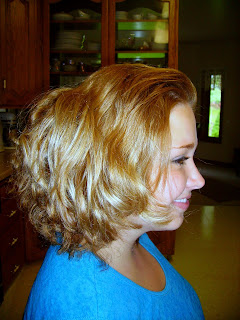1. 1.Define;
a. Anatomy, The visible structure of the body
b. Physiology, Functions of the body
c. Histology, Microscopic anatomy
2. 2.Why is the study of these important to cosmetology? We are some of the few people besides medical professionals licensed to touch, we had better know what we are doing. Knowing the structure of the body can help us to know what styles fit what body type.
3. 3.Name and describe the basic structures of a cell,
a. Nucleus, center of a cell
b. Cytoplasm, material between nucleus and membrane
c. Membrane, skin of the cell
4. 4.Explain cell metabolism and its purpose, the chemical process of living organisms.
5. 5. What are the five types of tissue found in the body?
a. Muscle –movement
b. Nerve-feeling
c. Fluid-blood
d. Epithelial- skin
e. Connective-tendons
6. 6.What are organs? A group of tissue designed to perform specific functions
7. 7. List and describe the functions of the main organs in the body
a. Lungs-breathing
b. Brain-controls the body
c. Kidney- excrete water and waste
d. Eyes- control vision
e. Liver-removes toxic waste
f. Skin-forms external skin
g. Stomach and intestine-digest food
h. Heart-pump blood
8. 8.Name ten body systems and their main functions
a. Endocrine-glands
b. Digestive-break down food
c. Excretory- purify blood
d. Respiratory- breathing
e. Integumentary- skin, glands, hair
f. Circulatory- blood flow
g. Nervous- feeling
h. Muscular- supports skeleton
i. Skeletal- bones
j. Reproductive- baby makin
9. 9.List primary functions of the bones- give the body shape and support
10. 10.Three types of muscular tissue in the body
a. Straiated muscles- attached to bones and volentary
b. Non straiated muscles- function with out conscious will
c. Cardiac muscle –heart
11. 11. Three types of nerves in the body
a. Central- brain
b. Peripheral- sensory, carry out impulses
c. Autonomic- involuntary
12. 12. Three types of blood vesles
a. Arteries-carry blood away from the heart
b. Veins- carry blood to the heart
c. Capillaries- tiny arteries and veins
13. 13.List and describe the components of blood
a. Red- carry oxygen
b. White- fight disease
c. Platelets- blood clotting
d. Plasma-carry food and energy to cells
14. 14. Two types of glands in the body
a. Endocrine- ductless, carries hormones to blood system
b. Exocrine- have ducts, carry sweat and oils
15. 15. Organs of the excretory system and their functions
a. Kidney- urine
b. Liver-bile
c. Skin- perseration
d. Large intestine- decomposing food
e. Lungs- carbohydrates





















